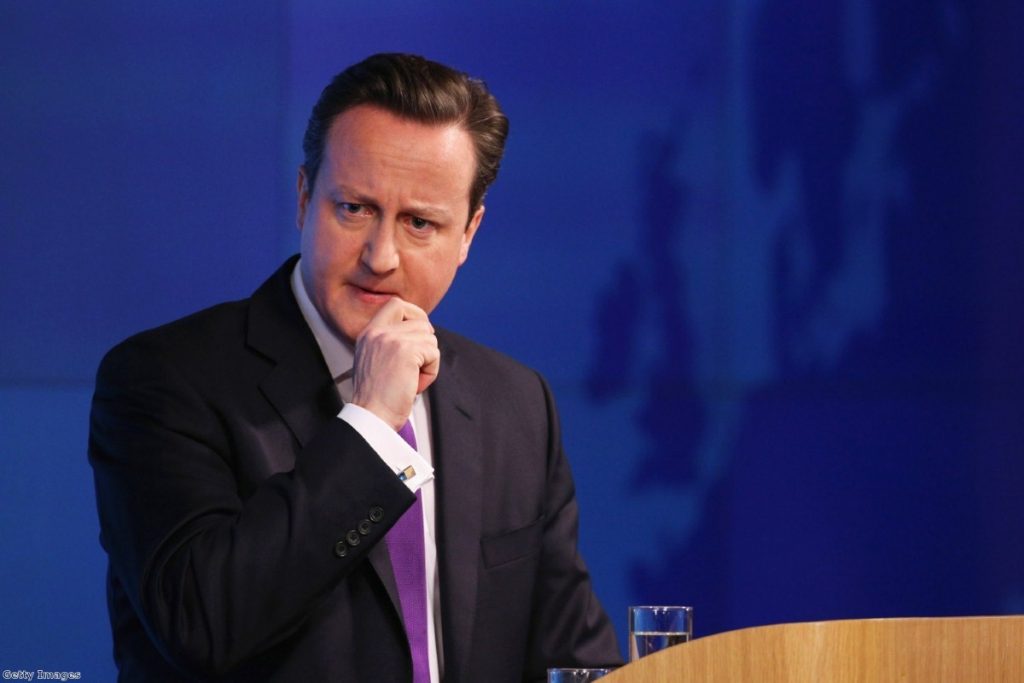Gay marriage aftermath: Is Cameron’s authority fatally undermined?
The odds on David Cameron stepping down as Tory leader before the next election were shortened last night, after more Tory MPs voted against his flagship bill on gay marriage than supported it.
One hundred and thirty six Conservative MPs voted against the bill, while 40 abstained. Just 127 voted for the legislation, helping it pass second reading by 400 votes to 175.
The vote follows other substantial rebellions from government backbenchers, including an 81-strong rebellion on an EU referendum and a 91-strong rebellion on Lords reform.
"Cameron's authority appears to be coming under pressure from several directions and defeat in the Eastleigh by-election would only add to his problems," said William Hill spokesman Graham Sharpe.
The odds on Cameron stepping down as Tory leader were cut from 4/1 to 7/2 in the wake of last night's vote.
Even senior Conservatives appeared prepared to rebel yesterday, with environment secretary Owen Paterson voting against the bill and defence secretary Philip Hammond and attorney general Dominic Grieve abstaining.
Last night's drama was a free vote, meaning MPs were not technically rebelling against the leadership, but with barely a third of the parliamentary party supporting the legislation it cemented the impression of a split and unruly Tory party.
Cameron was attacked from several quarters for refusing to attend the debate and only offering a short comment towards the end of proceedings.
Critics say the prime minister is stoking rebellions by refusing to get engaged in political fights and instead sitting them out on the sidelines.
The right-wing press was particularly critical in its response to the vote, with conservative newspapers saying the party's reputation for discipline "lay in tatters".
"This was a dark day for marriage and the family, which will suffer severe and long-term effects if this legislation is eventually passed," Paul Tully, general secretary of the Society for the Protection of Unborn Children (Spuc), said.
"Future generations of children would suffer as a result. So the fight to defend real marriage will and must go on.
"We call upon the millions of people who value marriage to continue to lobby parliamentarians to resist the bill."
Elsewhere, advocates of gay marriage were jubilant about the result.
"I genuinely believe that we will look back on today as a landmark for equality in Britain," deputy prime minister Nick Clegg said.
"No matter who you are and who you love, we are all equal."
Labour leader Ed Miliband said: "The overwhelming majority of Labour MPs supported this change to make sure marriage reflects the value we place on long-term, loving relationships whoever you love."
Neither Labour nor the Lib Dems suffered the same split as the Tories, but they still lost the support of a minority of socially conservative MPs.
Twenty-two Labour MPs voted against the bill and 16 abstained. Four Lib Dem MPs voted against and seven abstained.
The bill now goes to committee stage before the Lords, where it is expected to face sustained opposition.
"We anticipate, as always, a tough battle in the House of Lords," Stonewall chief executive Ben Summerskill said.
"Happily, the size of the Commons majority seen tonight – much larger than for most normal government business – will make it very difficult for peers to suggest that the Bill should be rejected."





-01.png)